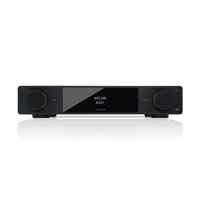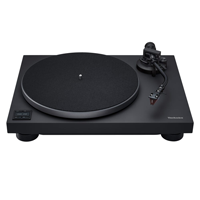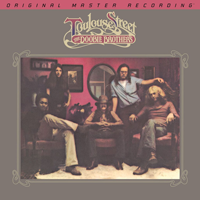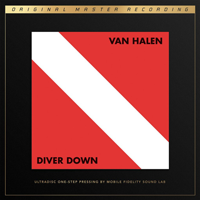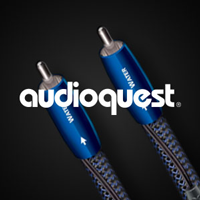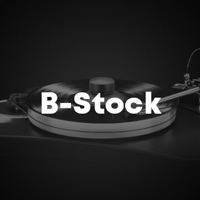Do you remember the video game Frogger? You had to jump like a frog to get across the road. A little simplistic, but back in the day, it was pretty cool. With temperatures in the low 60s, and the forecast calling for rain beginning in the afternoon, that's how it felt early in the day just trying to take a walk outside with our dog here in Chicago. Someone on the jam-packed sidewalks would be coming towards us, and we needed to quickly decide in which direction to go, and how we were going to get across the street. Maybe it was more like a game of chicken, where younger people just kept walking right towards us, and the more mature among us had to get out of the way and attempt to cross to the other side of the street.
I recently spoke with my friend Rick Blair from AudioQuest. We were discussing what it would look like for us to feel comfortable getting on an airplane or checking into a hotel. When will we feel good about attending a crowded concert or sitting inside a restaurant for a nice meal? As eager as I am for things to start to get back to normal, it might be a while before I am confident to be in a large crowd.
At the end of my work day, I put on the record Rick writes about below. Blues Breakers with Eric Clapton was an album I played the grooves off of while trying my best to play along with Clapton. I could hear the intro to Otis Rush's "All Your Love" before I even dropped the needle into the groove. This legendary LP really brought me back to those years, so thank you, Rick.
Today's Special Guest Contribution: John Mayall Blues Breakers with Eric Clapton
By Rick Blair, AudioQuest Regional Sales Manager/Blues Fanatic
"Once you start collecting records you learn more and more about jazz and blues." – John Mayall
My dad was the first significant influence on my music choices. The first music I heard were his records: Tommy Dorsey, Count Basie, Harry James, Les Brown, Artie Shaw, Perry Como, and Mantovani. He never left the 40s.
My first stereo was my dad's 1950s RCA Victor console with an AM radio and a turntable equipped with a ceramic cartridge – flip-over style for 33s, 45s, and 78s. One of my father's friends worked for Ampex. He cobbled together a system that could record and play open-reel tapes.
One day, I was spinning my first Billie Holiday record, and "If Dreams Come True" was playing. I was moved to tears and can remember my dad making fun of me. I didn't care. Dad liked the band playing behind her. No wonder. It featured tenor saxophonist Paul Quinichette, trumpeter Charlie Shavers, pianist Wynton Kelly, and guitarist Kenny Burrell.
When I first heard Blues Breakers with Eric Clapton, I was still a kid. It was played on a system at the HiFi Hutch in Mount Prospect, Illinois. Joe Maniola was demonstrating a McIntosh 5100 integrated amp, a Shure V15 mounted on a Thorens TD124, and it was connected to a pair of Klipsch Cornwalls. I think the MSRP was more than $2,000 – a lot of money at the time. I was mesmerized sitting in that showroom listening the day away, my mom having dropped me off while she went shopping at the mall. I remember it like it was yesterday. It was the first time I had ever heard McIntosh tubes playing through a pair of Klipschorns.
I worked hard when I was young, bagging groceries, picking up golf balls at the driving range, and toiling in the kitchen at a club. My father was none too happy when I took the money I had earned to buy my first system from the Hutch. He thought I should've saved it for a car. I said I'd drive his car when I became old enough to drive. At the time, music was more important to me.
Clapton's guitar work on this John Mayall record was like nothing I had heard from the British Invasion bands, including the work Clapton did with the Yardbirds. Jack Bruce guested on a couple of songs and later formed Cream with Clapton and Ginger Baker. The album led me down the rabbit hole from which I've never emerged. As a result of hearing it, I began exploring the Delta blues scene and the likes of T-Bone Walker, Big Joe Turner, Lowell Fulson, Roy Brown, John Lee Hooker, Muddy Waters, Sonny Boy Williamson, Howlin' Wolf, Elmore James, Little Walter, Jimmy Reed, and B. B. King.
Blues Breakers with Eric Clapton is so much more complex, sophisticated, engaging, and memorable than the live LP, John Mayall Plays John Mayall, but that one is pretty great, too. I heard Clapton sing lead for the first time on "Ramblin' on My Mind," along with his unmatched guitar work talking back and forth with the piano. "Steppin' Out" features Clapton squeezing the blues out of his Gibson Les Paul, a sound that changed popular music. "Double Crossing Time" is raw and cheatin' you blind with another flavor of Clapton experimenting and shredding the blues. No wonder that graffiti proclaimed "Clapton Is God" throughout London.
This is one of those albums that needs to be played from beginning to end, and when the tonearm reaches the last note of the last track on Side B, I find myself wishing it was a two-record set. The music influenced everyone on this side the pond. It turned Clapton into a superstar. Blues Breakers with Eric Clapton also introduced me to Aynsley Dunbar, but that is a story for another day.
28th Apr 2020

